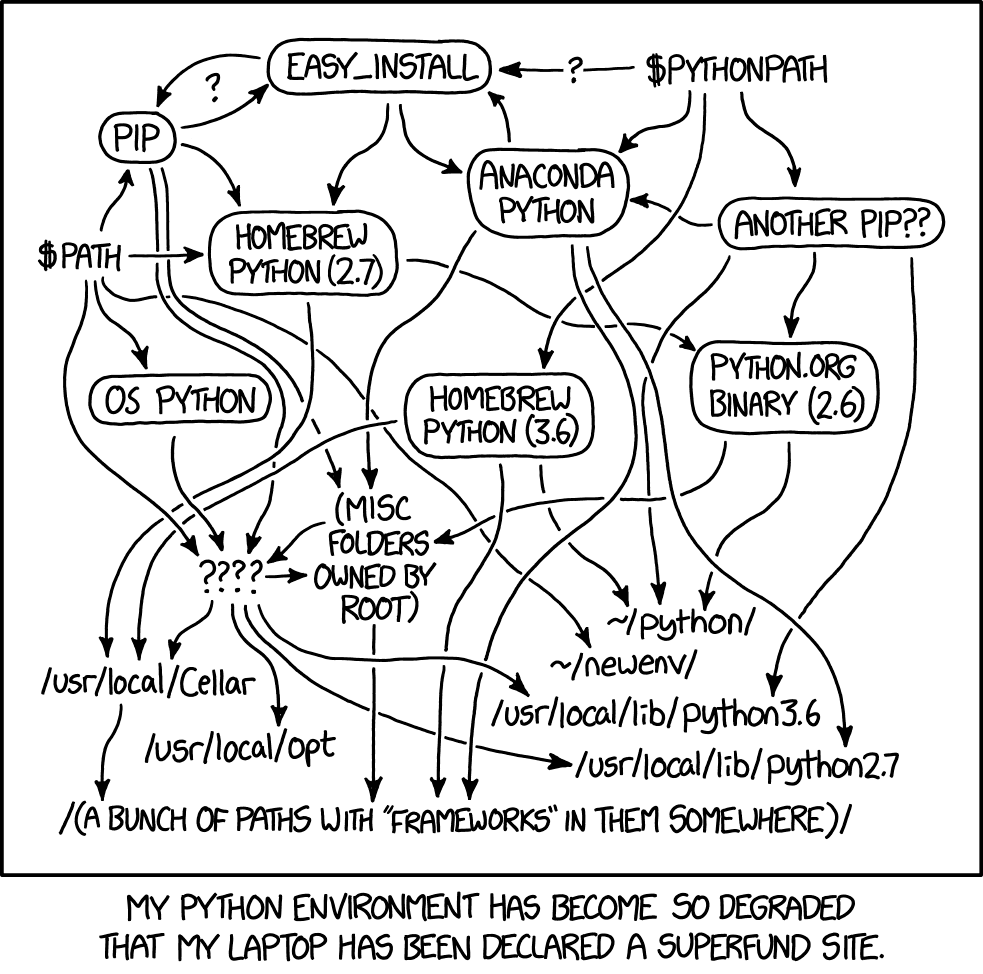7. Importing from Libraries/Modules#
One of Python’s greatest strengths is its vast array of excellent libraries. These are often referred to as libraries, „packages,“ or „modules.“ Python libraries are essentially online-available code. Typically, libraries contain useful functions for specific purposes and are organized so that the included functions fit together thematically. An example of such a library is math, which, as the name suggests, is a library for mathematical functions.
If a library is installed (we’ll cover this in a practical session), it can be imported like this:
import math
print(f"pi is {math.pi}")
print(f"Sine of pi/2 is {math.sin(math.pi/2)}")
Alternatively, only specific parts of a library can be imported:
from math import pi # Import only a part of the library
print(pi) # => 3.141592653589793
When importing, you can also rename items if needed:
from math import sin as sine_function
print(sine_function(1.0)) # => 0.8414709848078965
7.1. Python Universe#
Python has an abundance of libraries. We’ll use several of them during the semester. Just now, we briefly looked at math. Another commonly used library is random, which is used to generate random numbers.
from random import randint
print(randint(0, 10))
Or:
from random import randint
for _ in range(10):
print(randint(0, 10))
7.2. Importing Custom/Local Functions#
It’s also possible to import your own functions from .py files.
For example, if we write the following function:
from random import randint
def dices(n_dices):
"""Returns n_dices random dice results (dice with 1 to 6)."""
dice_results = []
for _ in range(n_dices):
dice_results.append(randint(1, 6))
return dice_results
…and save it in a file named dice_functions.py, we can import it (if we are in the same folder!) using:
from dice_functions import dices
print(dices(10))
7.2.1. > Mini-Quiz:#
It’s also possible to import libraries under a desired name:
import math as mathstuffWhat is the correct way to use the sine function? a)math.sin()b)mathstuff.sin()c)sin()
7.3. Python Universe#
One of Python’s major advantages is the vast number of freely available libraries covering almost every topic and need: mathematical functions, working with large datasets, database management, web searches, graphical visualizations, handling image, video, or audio formats, creating user interfaces, machine learning, and much more.
For beginners, however, this can also be a slight disadvantage, as it’s easy to get overwhelmed.

